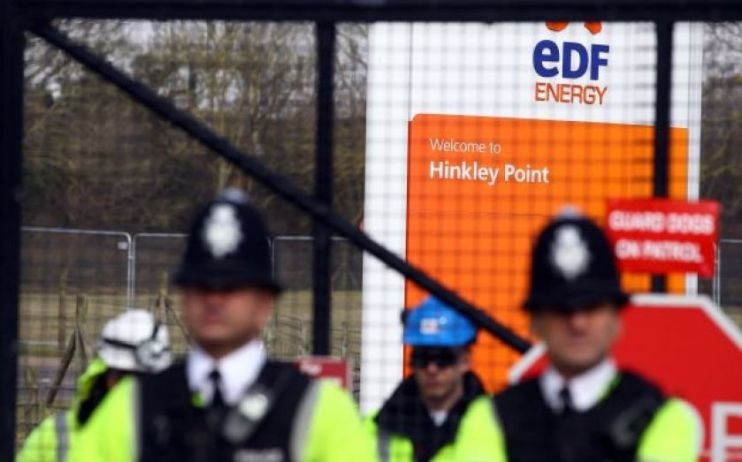EDF warns Hinkley Point may overshoot budget by £3bn

Britain’s signature new nuclear plant could cost up to £2.9bn more than expected, EDF warned today as it signalled that the chance of a delay to the project has increased.
The French energy giant said that the new price for Hinkley Point C is estimated at between £21.5bn and £22.5bn, an increase of £1.9bn to £2.9bn.
Read more: Consortium led by Dalmore in talks to buy stake in UK’s £6bn nuclear power stations
EDF’s shares were trading down around 6.5 per cent to €10.02 this morning.
The flagship project is forecast to start producing electricity in 2025. Its 3.2 gigawatts should be enough to power about 6m homes, or seven per cent of the UK’s electricity needs.
“Cost increases reflect challenging ground conditions which made earthworks more expensive than anticipated, revised action plan targets and extra costs needed to implement the completed functional design,” the company said.
It said that the risk of a delay at units one and two, of 15 and nine months respectively, has increased.
The news comes two years after EDF, which is building Hinkley with a Chinese power company, jacked up the price to £19.6bn.
However EDF stressed today that under its terms with the UK government – which has locked the price of electricity from Hinkley at £92.50 per megawatt hour – the rise will not impact consumers.
The Department for Business, Energy and Industrial Strategy said: “The Government negotiated a competitive deal on Hinkley Point C which ensures consumers won’t pay a penny until the station generates electricity. Any increase in costs will be borne entirely by EDF and their investment partners and not by consumers or taxpayers.”
Read more: Energy group Wood to sell nuclear arm for £250m
However activists at Greenpeace criticised the project, less than a week after the government awarded offshore wind contract to supply electricity for under £39.65 per megawatt – less than half the price of of Hinkley electricity.
“The new Hinkley nuclear plant looked like a bad idea when it was first proposed, and it’s got worse ever since. New offshore wind now costs less than half as much as Hinkley, and it might get even cheaper by the time the much-delayed reactors crank into action,” said the organisation’s chief scientist in the UK Doug Parr.